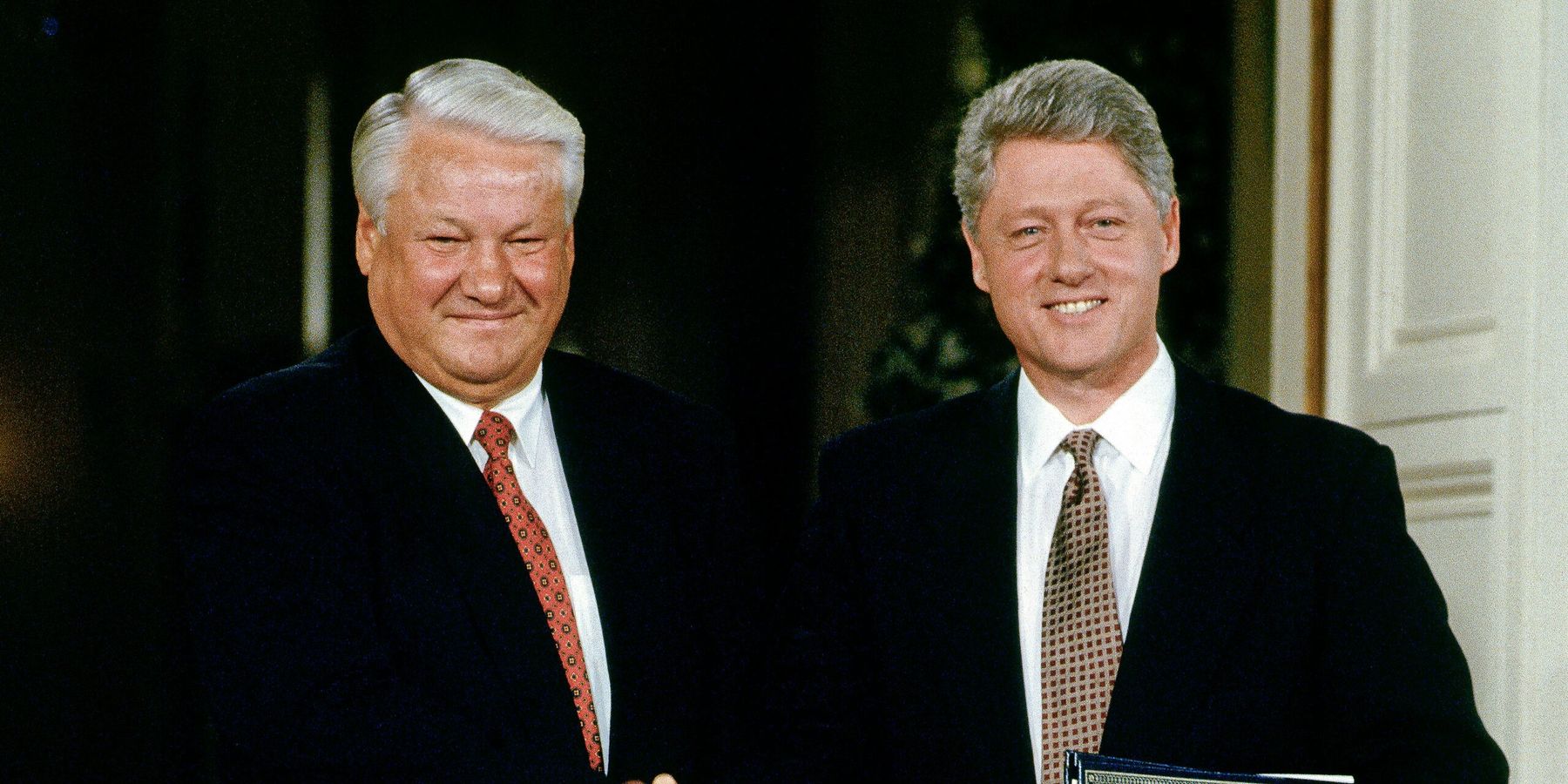This week at the NATO summit in Washington, alliance leaders are expected to sign a joint communique that declares that Ukraine is on an “irreversible” path to joining the alliance.
This decision is likely to be celebrated as a big step forward and a reflection of Western unity behind Ukraine, but a series of newly declassified documents show that the U.S. has known all along that NATO expansion over the last 30 years has posed a threat to Russia, and may have been a critical plank in Moscow's aggressive policies over that time, culminating in the invasion of Ukraine in 2022.
“The documents show that the Clinton administration’s policy in the 1990s emphasizing two tracks of both NATO enlargement and Russian engagement often collided, leaving lasting scars on [then Russian President Boris] Yeltsin, who constantly sought what he called partnership with the U.S,” according to the National Security Archive, which wrote about the newly declassified documents this week. “But as early as fall 1994, according to the documents, the Partnership for Peace alternative security structure for Europe, which included both Russia and Ukraine, was de-emphasized by U.S. policymakers, who only delayed NATO enlargement until both Clinton and Yeltsin could get through their re-elections in 1996.”
In 1995, then-national security adviser Anthony Lake warned President Bill Clinton that Russian leadership would not accept the expansion of the alliance to the East.
“Russian opposition to NATO enlargement is unlikely to yield in the near or medium term to some kind of grudging endorsement; Russia’s opposition is deep and profound,” Lake wrote. “For the period ahead, the Russian leadership will do its level best to derail our policy, given its conviction that any eastward expansion of NATO is at root antithetical to Russia’s long-term interests.”
Two years later, as Washington and Moscow were entering negotiations on the future of NATO-Russia cooperation, State Department official Dennis Ross wrote what the Archive calls an “astute and empathetic analysis” of the Russian position on NATO expansion.
“To begin with, the Russians for all the reasons you know see NATO expansion through a political, psychological, and historical lens,” Ross wrote in a memo to Strobe Talbott, then the Deputy Secretary of State.
“First they feel they were snookered at the time of German unification. As you noted with me, [former Secretary of State James] Baker's promises on not extending NATO military presence into what was East Germany were part of a perceived commitment not to expand the Alliance eastward,” the memo continues.”In addition, the 1991 promise to begin to transform NATO from a military alliance into a political alliance was part of the Soviet explanation for accepting a unified Germany in NATO.”
Because these perceived promises were never made concretely, Ross says, the Russians were “taking the lessons of 1991 and are trying to apply them now in the negotiations on NATO expansion.”
Despite these roadblocks, Clinton and his Russian counterpart Boris Yeltsin nonetheless reached an agreement on a series of issues at a summit in Helsinki one month later. During a private conversation with Clinton at that summit — which was part of the set of declassified documents — Yeltsin would say that he reached an agreement with NATO not because he wanted to “‘but because it is a forced step.”
In his exchange with the American president, Yeltsin made one thing apparent. “[NATO] enlargement should also not embrace the former Soviet republics,” he said. “I cannot sign any agreement without such language. Especially Ukraine. If you get them involved, it will create difficulties in our talks with Ukraine on a number of issues.” Clinton did not agree to a “gentlemen’s agreement” to that effect, and the two men eventually moved on.
The consequences of choosing to ignore Russian concerns decades ago continue to have an impact on relations between the West and Moscow today, experts say.
“These declassified documents underscore that U.S. officials clearly have long understood the depth of Moscow's objections to NATO's eastward expansion, going back to the Gorbachev era and Yeltsin's presidency. Yet Washington proceeded with this expansion anyway, judging that Russia would remain powerless to prevent it,” George Beebe, director of Grand Strategy at the Quincy Institute, told Responsible Statecraft. “Today, Russia is both embittered by this history and much more powerful than it was then, and it is resolved to block NATO's incorporation of Ukraine and Georgia by whatever means necessary.”
















